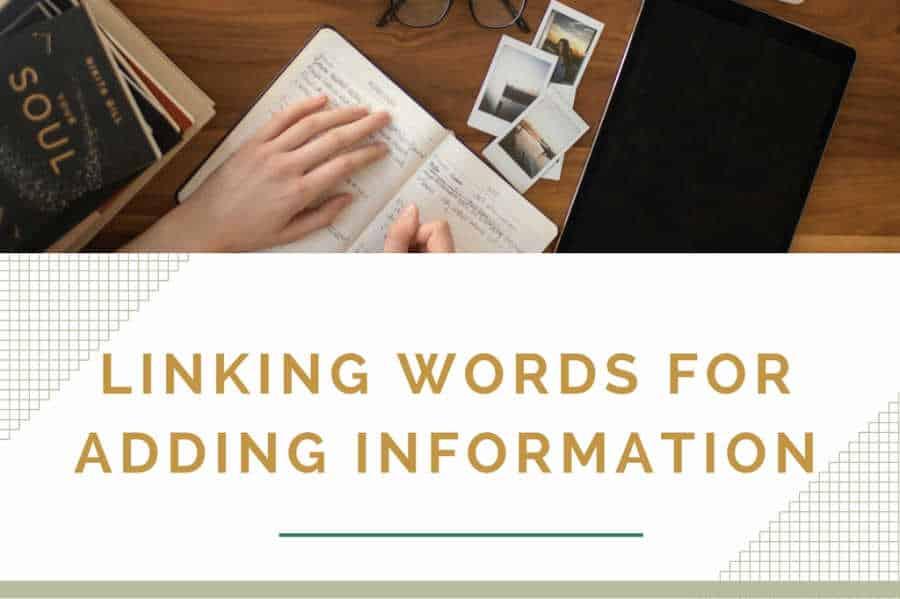How do you connect your ideas when writing? Have you ever felt bored of using “and” so many in your essay or speech? In this article, we’ll learn some most frequently used linking words for adding information (addition). Now, let’s get started!
1. Also
This is used to give more information or ideas. It can be put at the beginning of a sentence, or between the subject and the verb.
For example:
- Music has a great impact on our mental health. It’s also a useful tool to help us learn languages.
- We did a lot of sightseeing on our vacation. We also bought a number of souvenirs.
2. Besides/ Besides this/ Besides that
This is usually placed at the beginning of a sentence. It is used to make an additional point.
For example:
- Traffic congestion is a problem in my city. Besides this, the trains are very expensive.
- I can’t afford to go to the concert. Besides, I don’t really like classical music.
Pro tip: For those who are more likely to use smartphones, eJOY English 2 is a great app for learning English with step-by-step courses generated from authentic videos. You can easily learn and apply not only the common linking words but also phrases and expressions that natives use every day.

3. As well as
‘As well as’ is another linking words for adding information. This phrase can be used in the beginning of a sentence or in the middle of a sentence. “As well as” must be followed by another word. “As well” can stay at the end of a sentence (similarly to “too”).
For example:
- As well as being unemployed, Michal is running out of money.
- She’s not only extremely successful, she’s beautiful as well.
- She’s beautiful as well as being extremely successful.
4. In addition/ Additionally (more formal)
In addition (a preposition) and additionally (an adverb) are connective words that add information in one clause to the information in the next clause. The words are separated by a comma (,).
For example:
- Our new director can speak three languages. In addition, he has six years of experience.
- People who exercise regularly have more energy during the day and sleep better at night. Additionally, they tend to live longer.
5. And
‘And’ is the most common word used in English and is a linking word in order to add extra information.
For example:
- She loves reading, traveling, and playing guitar.
6. Too
The word ‘too’ is another common word in English used as a linking word which goes either at the end of a sentence or after a subject and means as well.
For example:
- She looks really tired and she must be really hungry too.
- I too think she is gorgeous.
7. Moreover/ Furthermore/ Further
These linking words are usually used at the beginning of a sentence to add another idea or further develop the previous point.
Example:
- Listening to music helps us relax. Moreover, it can help to improve our memory.
- The house is beautiful. Furthermore, it’s in a great location.
8. What’s more (more informal)
“What’s more” is used to add more information that emphasizes what you are saying.
For example:
- I’ve been fortunate to find a career that I love and, what’s more, I get well paid for it.
How many linking words for adding information you have known so far? What is your most frequently used word? It’d be boring if we use the same words over and over in our writing. Try to vary the words we use to enrich our writing!
And don’t forget to make a sentence with one of those linking words, then share your sentence in the comments below.















